Southampton health partnership research trials reach milestone
- Published
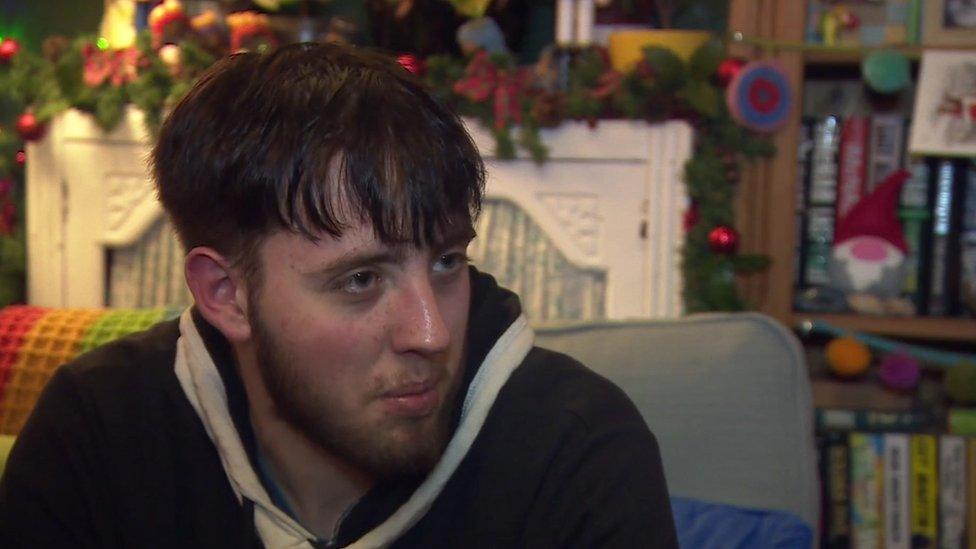
Luke Southey was chosen to test a new treatment five years ago
A hospital and university partnership has seen 250,000 people take part in clinical trials over the past 50 years.
Work by Southampton General Hospital and the University of Southampton has recently focused on vaccine research.
But at any one time, the partnership has about 500 research studies taking place across many diseases.
One participant, Luke Southey, told the BBC how taking part in a trial turned his life around after being diagnosed with cystic fibrosis at the age of two.
The 20-year-old spent his early years in and out of hospital.
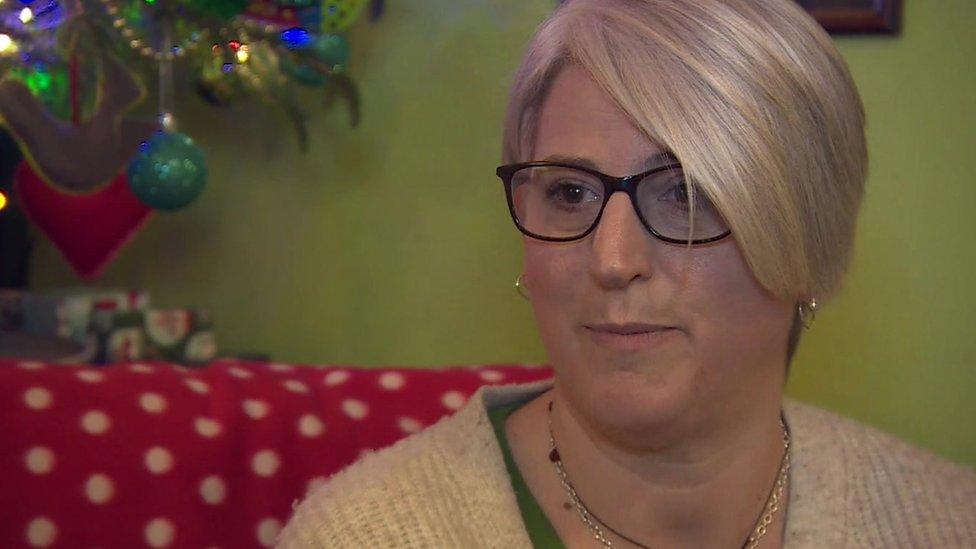
Luke's mum Vicki Peters said they feared losing him before the trial
He said before taking part in a trial at the hospital's clinical research facility he was "quite ill, quite bad".
Five years ago, when he was most sick, he was chosen to test a new treatment.
"When I look back on it now, I'm very grateful that it turned my life around," he said, adding: "I've not stayed in hospital since 2018 - it's been life-changing."
His mother Vicki Peters added: "I've always said it was better than winning the lottery. We knew that if something didn't happen soon we were going to lose him - the trial came right at the right time."
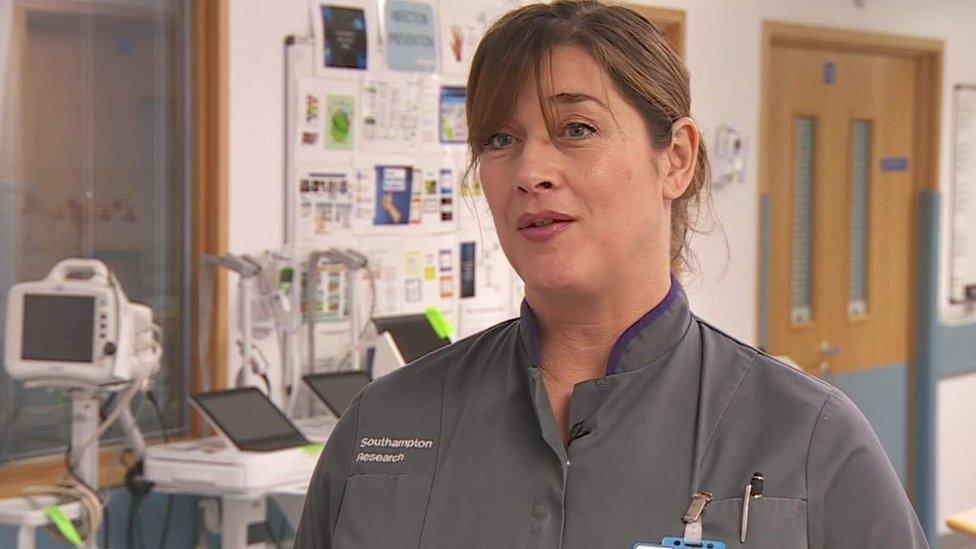
Lisa Berry said advances in treatment would not be possible without the patients and volunteers
Lead research matron Lisa Berry said: "Two-hundred-and-fifty thousands patients and volunteers have taken part in research here, that's something really to be proud of.
"We could not have achieved everything - all of the advances, all of the new treatments - without everyday people taking part in research and coming on that journey with us."
The centre is urging more people to get involved to help improve treatments, medicines and care.
Volunteer Jennifer Moore has been taking a new flu vaccine as part of a current trial.
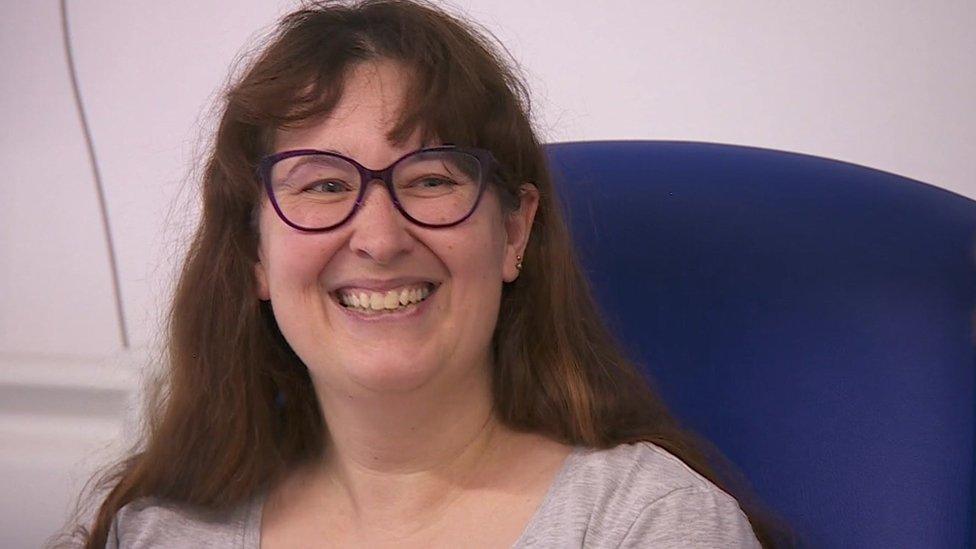
Jennifer Moore said her curiosity and desire to help led her to volunteer
She told the BBC: "I'm quite curious and I thought this may be a way I can help with something - and if it helps develop better vaccines for any future pandemics then I'm happy to help."
Southampton's clinical research facility opened in 2001 and was one of the first five centres in the UK - there are now 28, funded by the government.
Paul Grundy, chief medical officer at University Hospital Southampton, said most of the participants were taking part "because of the greater good".
He explained: "They are coming into these trials, which is giving us information - which may or may not affect their care but will definitely affect the care of thousands and millions of patients across the world in the future - so we're really grateful."
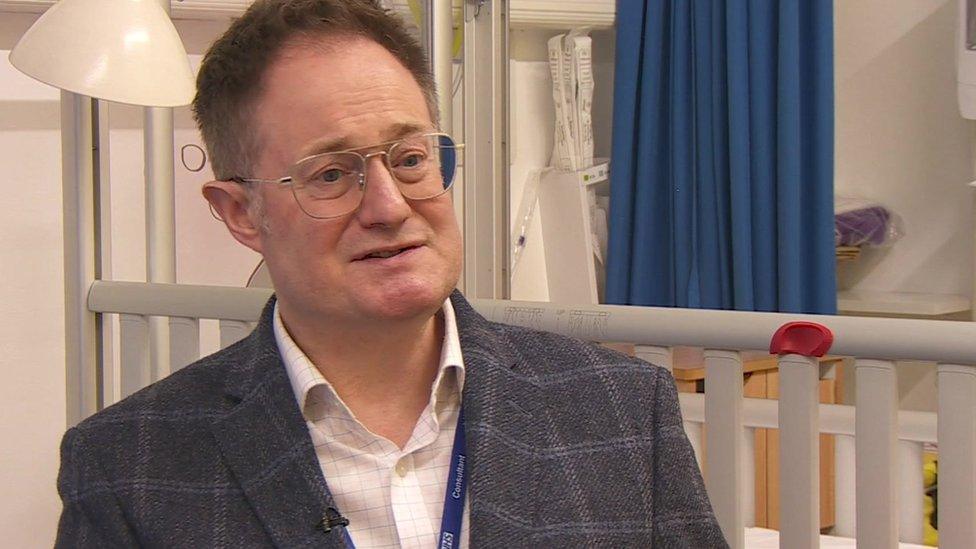
Paul Grundy, chief medical officer at University Hospital Southampton, praised those taking part in trials

Follow BBC South on Facebook, external, X, external, or Instagram, external. Send your story ideas to south.newsonline@bbc.co.uk, external.
Related topics
- Published3 July 2023
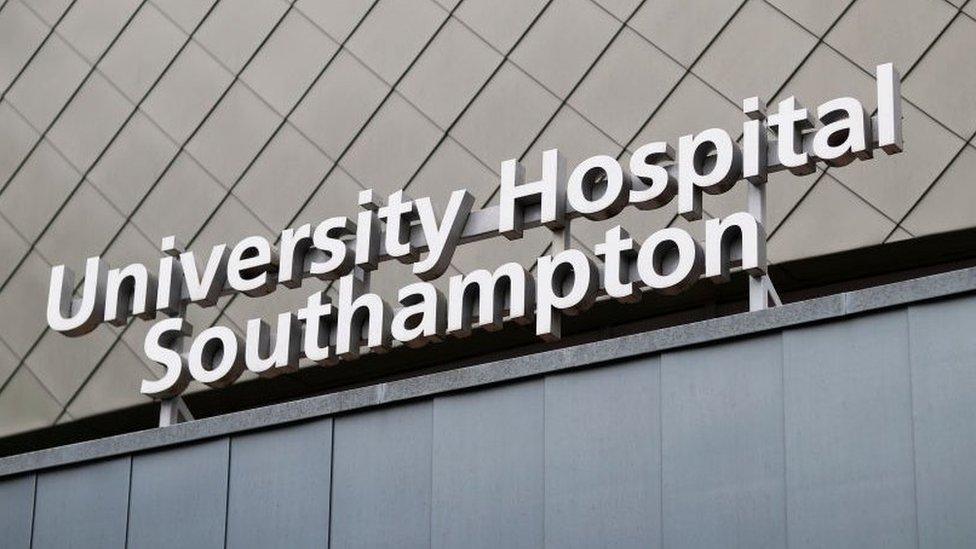
- Published30 March 2023
